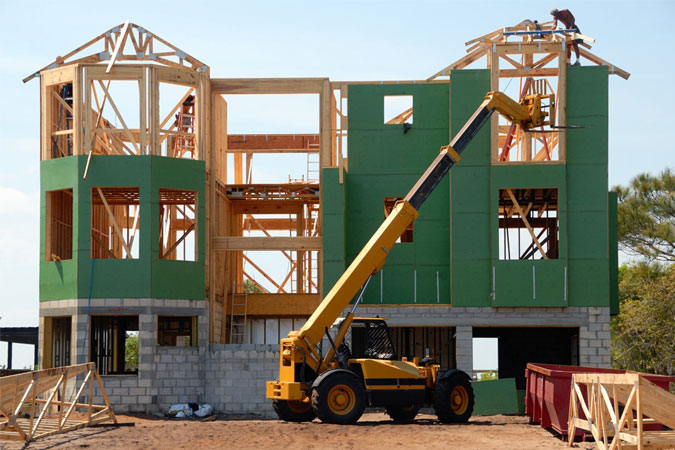A construction loan is a short-term financial product designed to provide funding for the construction of a new building or major renovation of an existing property, such as a home, commercial building, or development project. Construction loans differ from traditional mortgages, as they are specifically tailored to the unique financing needs of construction projects. Here is some important information about construction loans:
- Short-Term Nature: Construction loans are typically short-term loans with a duration of 6 to 18 months, although this can vary. They are designed to cover the costs of construction as it progresses and are paid off once the construction is complete.
- Two-Phase Structure: Construction loans typically have two phases:
- Construction Phase: During this phase, borrowers access funds to pay for the construction work, which is usually paid directly to the contractors and subcontractors.
- Permanent Financing Phase: Once construction is finished, the construction loan is replaced with a traditional mortgage or long-term financing.
- Interest Payments: Borrowers are often required to make interest-only payments during the construction phase. These payments cover the accrued interest on the disbursed funds, rather than reducing the principal amount of the loan.
- Loan Disbursement: Construction loans disburse funds in stages, typically based on milestones achieved in the construction process. Lenders may conduct inspections and require documentation to release funds at each stage.
- Collateral: The property being constructed serves as collateral for the loan. If the borrower defaults, the lender can take possession of the property.
- Approval Process: The approval process for a construction loan may involve a more detailed examination of the construction plans, the builder’s qualifications, and the projected costs compared to the final appraised value.
- Interest Rates: Interest rates for construction loans are often higher than those for traditional mortgages. This is because they are short-term and considered riskier by lenders.
- Down Payment: Borrowers typically need to provide a substantial down payment, often around 20-25% of the project’s total cost. The down payment can be in the form of cash, equity from land already owned, or a combination of both.
- Builder and Contractor Requirements: Lenders may have specific requirements for builders and contractors, including licensing and experience, to ensure the project’s successful completion.
- Conversion to Permanent Loan: Once the construction is complete, borrowers must secure permanent financing, such as a mortgage, to pay off the construction loan. The terms and rates of the permanent loan may be negotiated separately.
- Pre-Approval: Prospective borrowers may need to obtain pre-approval for both the construction loan and the permanent mortgage to ensure they can complete the project successfully.
Construction loans are essential for individuals and businesses looking to fund construction projects. They provide a means to finance construction costs and then transition to permanent financing once the project is completed. Due to the complex nature of construction, it’s crucial to work with experienced lenders and contractors when pursuing a construction loan.

